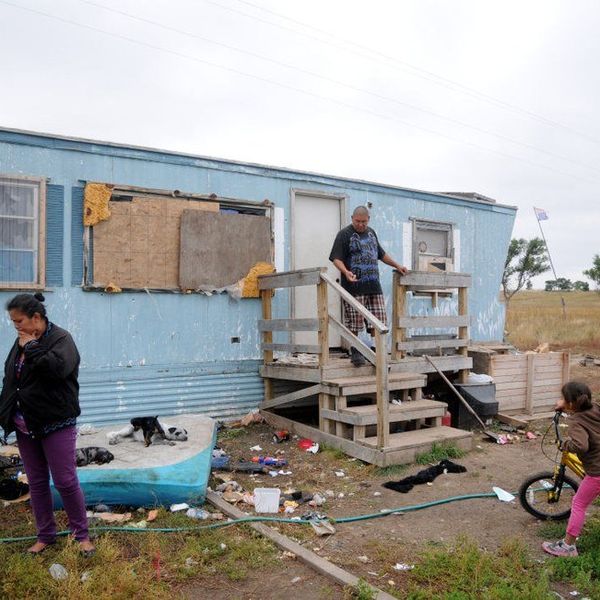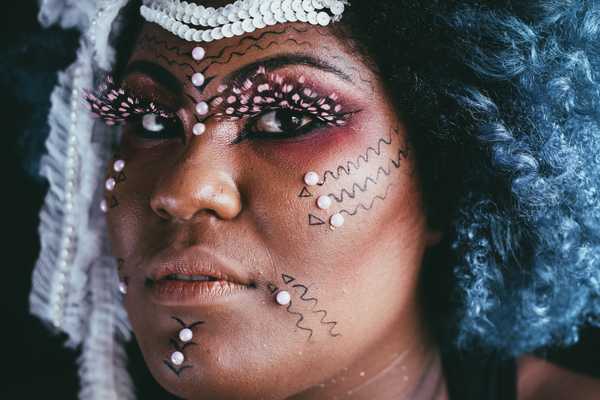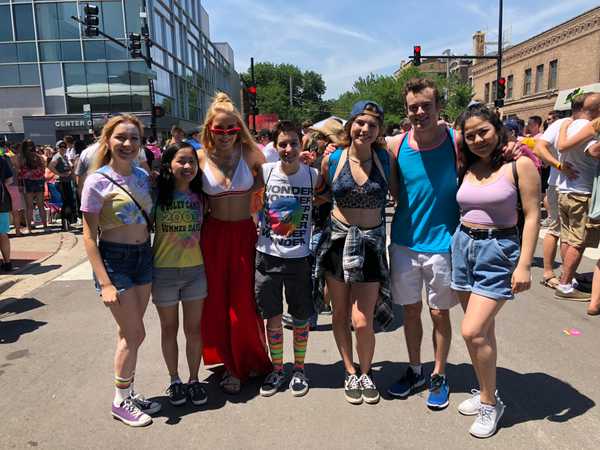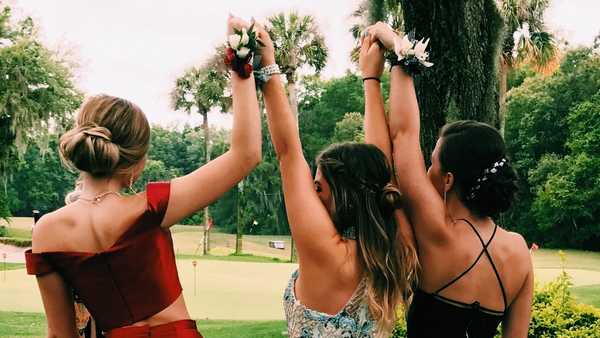Global Media Coverage on Native Americans Is Disappointing
Growing up, my sole knowledge about Native Americans came from movies, TV series and cartoons because there were no other mainstream sources available on the subject. I did not know any better at the time, but a lot of the information I acquired over those years is derogatory and disrespectful to Native nations. As a matter of fact, I am actually embarrassed to write out the things I believed to be true about Native Americans as a young teenager (thank you, mainstream media). Like many others, I did not know anything about the gravity of ongoing issues in American society when it comes to Natives. It might come across as shocking, but a majority of the East still believes that African Americans were the only ones who suffered from discrimination and its 2nd and 3rd degree effects up until now, when they think Muslims (since 9/11) and now Mexicans (thank you, Mr. Trump) were also added to the list. Sadly, media and other agencies did a very good job in convincing the vast majority of people outside the United States to believe everything that is untrue about the original inhabitants of this land.
The World is Naïve About Native American History
I can go on for days about this one. . There are currently 567 federally recognized tribal nations in the US alone, and over 200 non-federally recognized tribes, yet people still think of “Native Americans” as one culture. If that came across as a shock, you may be even more surprised to find out that the United States Constitution recognizes each one of them as sovereign governments. Each nation/tribe is independent in its identity; with its own language, culture, religion, history and origin. Yet they are all still painted under the single brush. People think of them as one, unaware of the world beyond their horizons until they were all “discovered” by Columbus and “saved” by missionaries who ultimately followed him. While death toll of Holocaust is estimated to be 11 million at the most, these numbers peak up to 114 million when it comes to indigenous peoples. As a matter of fact, John Toland writes in “Adolph Hitler” that Hitler often praised the efficiency of America’s extermination methods of indigenous people to his inner circle and also claimed that he owed the practicality of Holocaust to his studies of English and United States history.
The Nation of Immigrants Has Not Been So Nice to Their Hosts
No one ever likes foreigners invading their lands in the name of discovery and exploration, but what is more agonizing is when they try to teach you what they think is the right way of life. Native Americans have been fighting for their territory and sovereignty since the day Columbus set his foot on this soil. Due to increasing incursions into Native territory by settlers, many indigenous tribes who joined the American Revolution joined the British side in hopes of halting further expansion in native lands. As a result, many native settlements were completely destroyed by revolutionaries during that time period.
The declaration of independence refers to natives as “merciless Indian Savages” which makes it clear that the newly formed American society believed native societies to be inferior. The society, therefore, decided that these people needed to be “civilized”. In order to do so, many experimental plans were put in place to achieve the desired objective which ended up damaging the tribes more; America started expanding in the continent either by killing or by forcefully moving those who posed resistance in their way. It was not until 1817 when the Cherokee became the first Native Americans to be recognized as U.S citizens.
As part of experiments, Native American Boarding Schools were also established during the same time period and continued well into 1900s. The schools were affiliated with Christian missionaries who prohibited kids from speaking their native language, practice religion or adhere to their cultural norms. Many cases of sexual abuse and death due to sickness were also reported in these schools later on. They were also taught Christianity in order to “acculturate” them to the general society. It left permanent mark on young souls that translated in historical trauma and inter-generational violence.
Native Americans Are Still Struggling to End Racial Slurs and Discrimination
Although Native Americans have come a long way since the discovery and colonization of America, they are still very far from what they deserve. Not only they are struggling to improve living standards and opportunities on reservations, they are also fighting to end the discrimination of many towards them; the discrimination that silently instills in the minds of those who only get to learn “American” perspective of Native history. There are many racial slurs that exist to date and are identified with teams or clubs. People fail to recognize the blood and grief behind those words; they fail to understand the context in which they originated and what they represent. After reading the history, I personally find the term “American Indian” even derogatory because it negates their independent identity. It was a name given to over 500 nations only because one man thought that he had landed in India.
I have questioned many about their justification on use of these terms and the most popular response was that they, in a sense, respect and recognize existence of Native Americans by using those terms which, to me, is very disturbing. The logic is synonymous to that of a drunken person who believes that cat-calling a woman is an acceptable way of appreciating and recognizing her beauty. I personally believe that as long as it will be okay to use such terms, natives will never be able to attain equality in its true form.
Native Women Are the Biggest Sufferers of Stereotyping
According to the Bureau of Justice, Native Women are 2.5 times more likely to be sexually assaulted than other groups of women in USA (5 per 1000 vs. 2 per 1000). Similarly, 1 in 3 native women will be sexually assault during her lifetime (1 in 3 vs. 1 in 5). There are two main reasons behind the elevated number when it comes to native women. One, it is the treatment of native women as an “exotic treat” to be proud of (thank you, Disney and Hollywood). The fact that many like to dress as “sexy tribal women” on occasions like Halloween validates the argument that this is a pressing issue. Two, the ease with which outsiders can get away with the crimes because tribes cannot prosecute non-tribal members who commit crimes on tribal lands. If thought about, this loophole in the law is really concerning. Statistics show that over ¾ of crimes committed on tribal lands are committed by outsiders. Either way, the result is threatening the lives and career of many young indigenous women on road to achieve their dreams in schools, colleges and workplaces.
Their Fight for Economic and Environmental Rights is Ongoing
Today, Native Americans are struggling individually and as a group. The war that started on August 3rd of 1492 has taken a whole new turn. There have not been many full scale armed wars (for the most part) in recent history but the torture still exists. From subtle discrimination to assault in colleges, from lack of schooling to poor living standards in reservations, and from petitions to literal fights to protect sacred sites in their lands, almost every Native American is fighting a bigger fight compared to most of their counterparts. It is not their culture that promotes alcoholism or drug addiction, it is the lack of external support and resources, whether be educational or recreational, that come with depression and sense of loneliness that forces them to walk these unforgiving paths.
We Owe Them Our Support
Despite every wrong done to them, indigenous tribes have always been loyal to their motherland. From the great American Civil War to war against terrorism, native men and women have served in military. They have served alongside their people who have been serving this nation in professions beside military. In return for their lives, all they ask for are equal opportunities, a culture of respect, to be heard and be able to tell their side of the story, to not have to be worried about government selling their sacred lands for mineral extraction, to be as safe as other Americans, to be recognized as an existing and growing community and to be able to practice what they believe in.
They specially need our support right now with events in North Dakota. It is not just an issue of respecting their land and deceased, but an issue of humanity where many can suffer from lack of drinkable water. Protesters have been attacked by guard dogs, people are being treated cruelly, and many have reported assault and other forms of unnecessary violence. It has worsened to the point that the UN has now stepped in to put a halt to violation of human rights taking place on site. To credit the iron will of protesters who have legitimate environmental concerns, many A-list celebrities have joined their cause to help spread the word and hopefully alter the pipeline route. It is in these dire circumstances when they need our help and our support. They need us to voice their voice in order to put an end to current and future sufferings of all those involved.
Just like when we forget to pay heed to our backyard when there are things going on in the neighborhood, American society is also ignoring ongoing issues with Native Americans and many other minorities in the heat of global events. Any external threat can be dealt with, as long as we are internally united and supportive of each other. It is not the ISIS that poses an imminent threat to well-being of the Americans but these cultural and societal issues that can shake the very foundations of our society and leave us incapable of dealing with external issues. United we stand, divided we fall!
I would like to cordially thank Emily Lucas for making sure I had all my facts right. She is an Apache and a senior at Colorado College who is actively involved in betterment of her community by creating awareness and by taking necessary corrective measures, if needed.





















